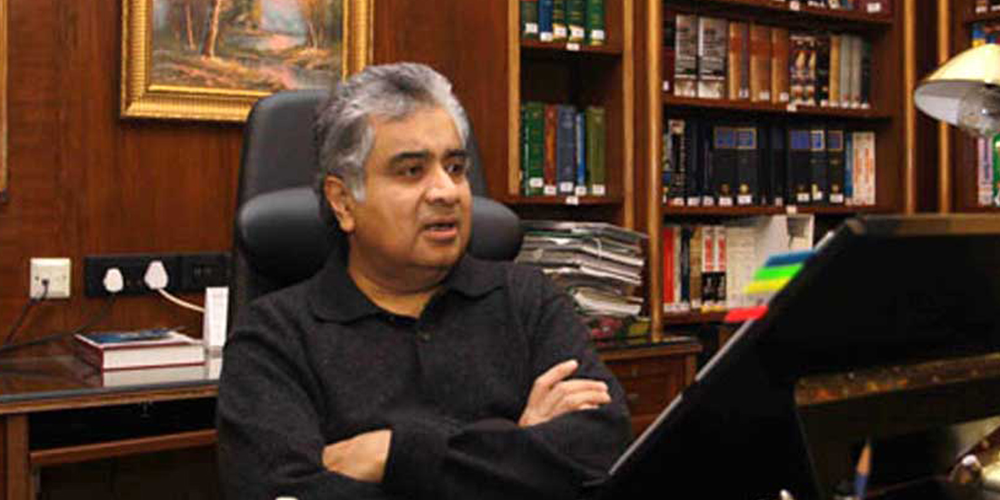Meet India’s Most Expensive Lawyer – Harish Salve
- admin
- 2023-08-29
- 4 min read

The costliest attorney in India, Harish Salve, has handled numerous high-profile matters over the decades. When he was younger, he had no desire to practice law; instead, he intended to pursue a career in accounting. He is now a role model for many aspiring lawyers in India and beyond. Discover how he ended up attending law school or how his life changed by following this blog.
Harish Salve, Who Is He?
Contents
Indian attorney Harish Salve is an expert in tax and constitutional law. He mostly worked at the Supreme Court of India, although he also participated in international arbitration and other High Courts. Occasionally as a lawyer, and other times as a judge. Additionally, India Today Magazine’s 2019 list of India’s 50 Most Powerful placed him at number 19.
Early Years
Harish Salve was raised in a legal household and was born in Nagpur. He is the son of the late Indian National Congressperson and prominent politician N K P Salve. His grandfather, P.K. Salve, was also an effective criminal defense attorney. The Salve family hails from Chhindwara in Madhya Pradesh, but they were previously from Maharashtra.
The Spiral of Change
When Harish Salve was a child, he aspired to be an engineer, but when he was prepared for college, he developed an interest in Chartered Accounting. He attended Rashtrasant Tukadoji Maharaj Nagpur University for college after finishing high school at St. Francis DeSales High School in Nagpur, Maharashtra. In 1975, Harish Salve’s career narrative saw a sea change. Salve wrote a message on some challenging aspects of the settlement commission’s processes that created new questions for interpretation as he studied for the C.A. exam. After seeing that remark, Nani Palkhivala was highly impressed and requested Harish Salve to join the industry.
Career
Harish Salve obtained his C.A. certification from the Institute of Chartered Accountants of India and worked as a C.A. in taxation. He started working at J.B. as an intern in 1980 and eventually became a full-time attorney there. Throughout his apprenticeship, he helped Nani Palkhivala with the Minerva Mills case. Later, the Delhi High Court elevated him to a Senior Counsel.
He collaborated with the previous justice department from 1980 to 1986. He was appointed India’s Solicitor General in November 1999. He handled many significant cases for the Union of India as a legal representative, including the first “Anti-Dumping” case in the Indian Supreme Court and the “Privatization of PSUs” case. He also worked on significant non-litigation projects, like directing the WTO talks and creating laws for the Competition Commission, which offered him a broader view of legal issues outside of issues involving litigation.
Awards and Successes
Numerous honors have been given to Harish Salve. The following are some of the significant benefits and accomplishments in his life that one should be aware of:
● Harish Salve holds the Padma Vibhushan. In the Republic of India, it ranks second among all civilian honors, next to the Bharat Ratna, along with the Padma Bhushan and the Padma Shri.
● K Parasaran and Mohan Parasaran praised him for being honored by the Rotary Club of Madras.
● Additionally, he served as the Queen’s Counsel for the courts in England and Wales.
Harish Salve Quotations
Let’s look at some of the remarks made by Harish Salve while he was testifying in court. He spoke on the following issues:
● The bar organization should end inaccurate criticism rather than engage in a power of scorn duel.
“Humans have always acknowledged that the court’s rulings may be questioned, even in obscene language. Can the decision-making procedure be criticized? Why not? Can’t anyone inquire why some cases were handled in particular ways? Naturally, anyone can. The decision-making procedure is reviewed because the judiciary is run in the open.”
● Criticism shouldn’t undermine the institution’s standing with the general public.
“This undermines public confidence” when someone claims that an organization has lost its autonomy, the judiciary is operating at someone’s direction, or there was corruption when there wasn’t any.
● Society is not sophisticated enough to eliminate the disrespect for the law.
“Humans don’t believe we’re ready to do away with the concepts of mocking the judiciary and scandalizing it. Humans don’t believe that Indian society has matured to the point that individuals are unwilling or mature enough to understand, which humans believe is a preposterous claim.”
● The bar must respond to complaints against justices and tribunals.
“The judges expect something from us. Although the courts cannot react to unfounded criticism, it is also true—and crucial to keep in mind—that we, as lawyers, are a part of that community and must deal with complaints. “Sophisticated criticism.”
21K School
Read our latest education blogs here. We are pioneers in proffering personalised, affordable and high-quality lessons using an advanced learning platform.


Join Asia’s Leading Online School and Unlock
endless opportunities
Join Asia’s
Leading Online School
and Unlock endless opportunities
You may also want to read

 Thailand
Thailand Nepal
Nepal




